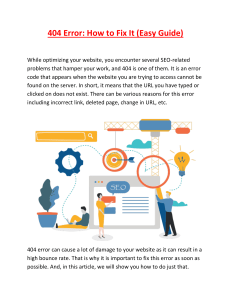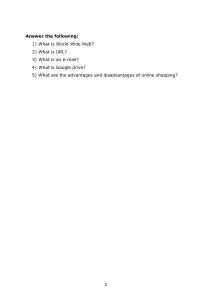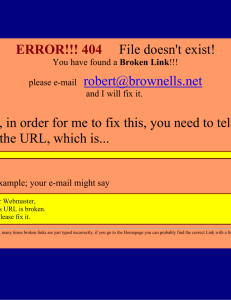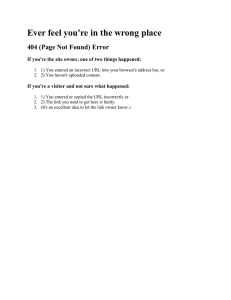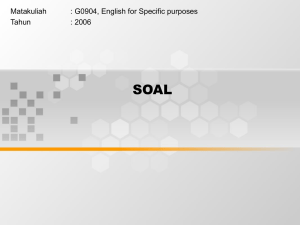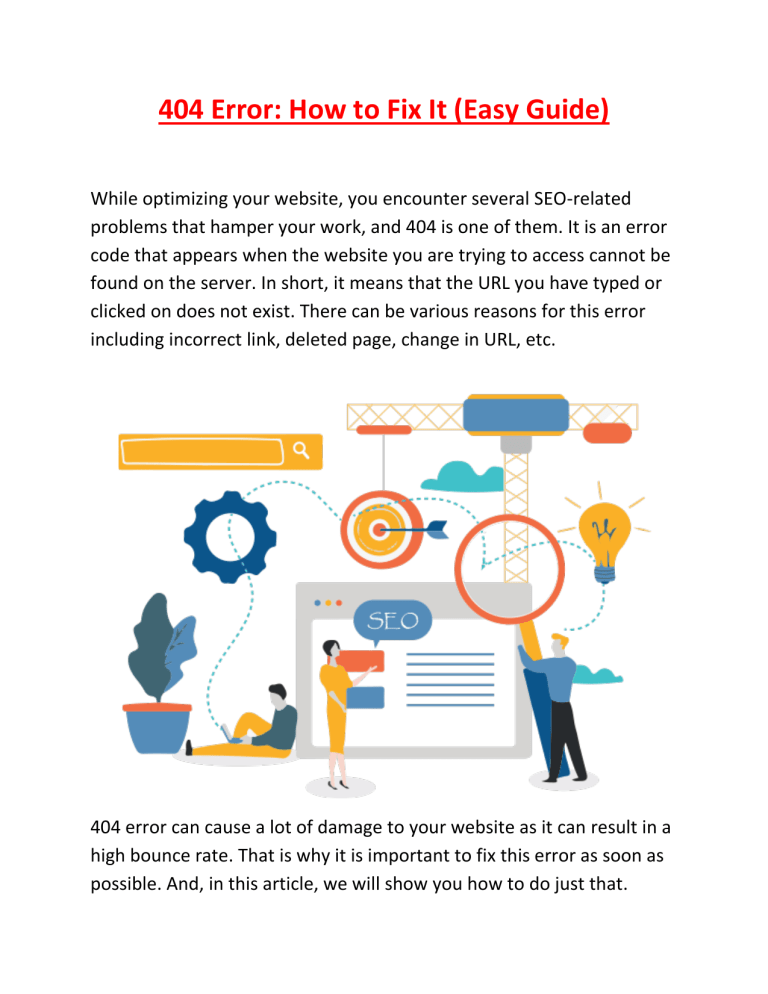
404 Error: How to Fix It (Easy Guide) While optimizing your website, you encounter several SEO-related problems that hamper your work, and 404 is one of them. It is an error code that appears when the website you are trying to access cannot be found on the server. In short, it means that the URL you have typed or clicked on does not exist. There can be various reasons for this error including incorrect link, deleted page, change in URL, etc. 404 error can cause a lot of damage to your website as it can result in a high bounce rate. That is why it is important to fix this error as soon as possible. And, in this article, we will show you how to do just that. First, let’s take a look at how the 404 error appears on your website? When a user tries to access a broken link, the following message appears on their screen: “404 Not Found, The requested URL was not found on this server. Additionally, a 404 Not Found error was encountered while trying to use an Error Document to handle the request.” This message looks different on different browsers but the meaning is still the same. The website you are trying to reach is not available right now. If a website has multiple 404 pages, it can cause serious damage to the website’s ranking. Disadvantages of 404 error: There are several disadvantages of 404 errors that your website needs to face if these errors are not fixed. Some of the key cons are: Poor user experience: When a user is unable to find the content they are looking for, it creates a bad user experience. This increases the chance of them leaving your website and going to your competitor’s site. High bounce rate: A high bounce rate is one of the biggest disadvantages of 404 errors. When a user clicks on a broken link and sees a 404 error message, they are likely to leave the site immediately. This increases the bounce rate which is not good for your website. Lower-ranking in search engines: If a website has a lot of 404 errors, it can lower its ranking of that site in search engine results pages (SERP). Moreover, lower rankings give a direct advantage to your competitors and make it difficult for you to attract new visitors. Lower sales: A website with 404 errors is likely to see a lower number of sales and conversions. This is because the website is unable to provide a good user experience which is necessary for making a sale. When the overall user experience is seamless, you don’t need to put much effort into marketing to boost sales. Thus, it’s important to find and fix all the 404 errors on your website. So, how do you fix 404 errors on your website? Below are some of the methods you can use to make your website technically sound: 1. Check for broken links The first step is to check if there are any broken links on your website. You can do this manually or by using a tool like Screaming Frog. Once you have found the broken links, redirect them to the correct page using 301 redirects. 2. Restore deleted pages If you have accidentally deleted a page from your website, it can result in a 404 error. In such cases, you will need to restore the deleted page. To do that, simply go to your Google Analytics account and look for the page under “Behavior > Site Content > All Pages.” 3. Change the URL Sometimes, you may need to change the URL of a page due to various reasons. But if you don’t redirect the old URL to the new one, it will result in a 404 error. So, if you have changed the URL of a page, make sure to add a 301 redirect from the old URL to the new one. 4. Check the .htaccess file If you are still seeing 404 errors on your website, there might be something wrong with your .htaccess file. To fix this, simply connect to your website using an FTP client and check for any syntax errors in the file. If you find any, simply delete them and save the file. 5. Contact the host If you have tried all the above methods and still see 404 errors on your website, there might be a problem with your server. In such cases, you will need to contact your host and ask them to fix the issue. Wrapping up! 404 error can cause a lot of damage to your website if it’s not fixed properly. That is why it is important to redirect the broken links to the correct pages. You can also use various tools to check for broken links on your website. If you’re using WordPress CMS, you can use plugins like Broken Link Checker to easily fix 404 errors. If you want to know more about broken links then you need to connect with a digital marketing agency.
